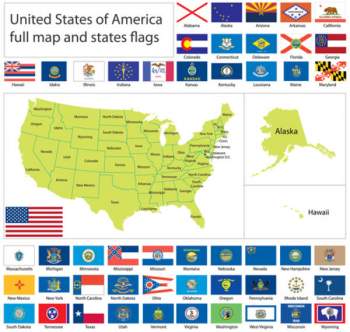
What Are Circuit Courts

Must Read
What is a Certified Verbatim Reporter (CVR)?
A Certified Verbatim Reporter, a type of court reporting certification, is a licensed and certified professional responsible for the transcription of speech into text taking place within a court hearing or trial. The act of transcribing legal proceedings from speech form into textual form is regarded as legal transcription.
Certified Verbatim Reporter positions are classified as legal occupations requiring specific certifications from accredited institutions. Certified Verbatim Reporter positions are offered in a multitude of professional settings, which include a varying degree of courts and legal venues, including municipal courts, city courts, state courts, district courts, circuit courts, superior courts, appellate courts, and the Supreme Court.
The field specialties required within the varying degrees of Certified Verbatim Reporter positions are vast, ranging in salary, legal setting, and equipment used.
What is a Circuit Court?
At the most basic level, a circuit court system is a group of legal venues that works together as a regional justice system. A circuit court will try cases and hear appeals from within a specific region. As a result of these localized characteristics, the generic circuit court in the United States will maintain a unique scope and purpose.
The differences latent in a particular circuit court’s procedure and legal administrative process will vary from region and from country to country. For instance, both the United States and the United Kingdom use a circuit court system. However, each country is served differently based on the incongruent functions of their district court’s judiciary system.
In the United States, each State is apportioned to 11 separate circuits, which consist of a minimum of 3 states per circuit. A circuit court of appeals functions in order to provide individuals or entities with a venue in which to engage in appeal hearings.
Upon the approval of an appellate hearing, the motion for supplementary judicial review will be brought before the applicable circuit court of appeals. However, the only cases permitted to be heard before a circuit court of appeals are as follows:
Cases that have been heard by the applicable ‘lower courts’ existing within the hierarchical court system undertaken by that particular appellate jurisdiction.Cases that involve individuals, events, or circumstances involving an area or location transcending a single State boundary or shared bodies of water.
History of the Circuit Court:
In a historical sense, a circuit court was a series of court sessions held in various parts of a region at different times. Before the modernization of communication and transportation, the majority of regions throughout the United States had no local courts where legal matters could be heard. As a result of this system, judges and lawyers often traveled from place to place to evaluate cases and dispense verdicts.
The circuit court system was originally a way to bring the laws of a nation into localities where there was no access to legal professionals or judges. This historical definition, however, is no longer acceptable, for the circuit court system has been replaced by permanent court systems in the majority of regions. That being said, several countries maintain the title of circuit court for at least part of their judicial system.
Circuit Court System in the United States:
In the United States, the term circuit court appears at both the State and Federal level. Congress has divided the United States into various judicial circuits to hand both original cases and appeals present within the region.
Many states in America have their own circuit court system. Each circuit court system determines the level of jurisdiction its courts will have. That being said, the majority of circuit court systems in the United States are trial courts that will handle a variety of cases.
In the United States, most State circuit court systems are divided into district courts and subsequently fragmented even further to include separate court systems for different categories of law. For instance, in the United States, many circuit courts have separate family courts, small claims courts and drug courts.
NEXT: Your Guide to the Second Circuit Court of Appeals




















